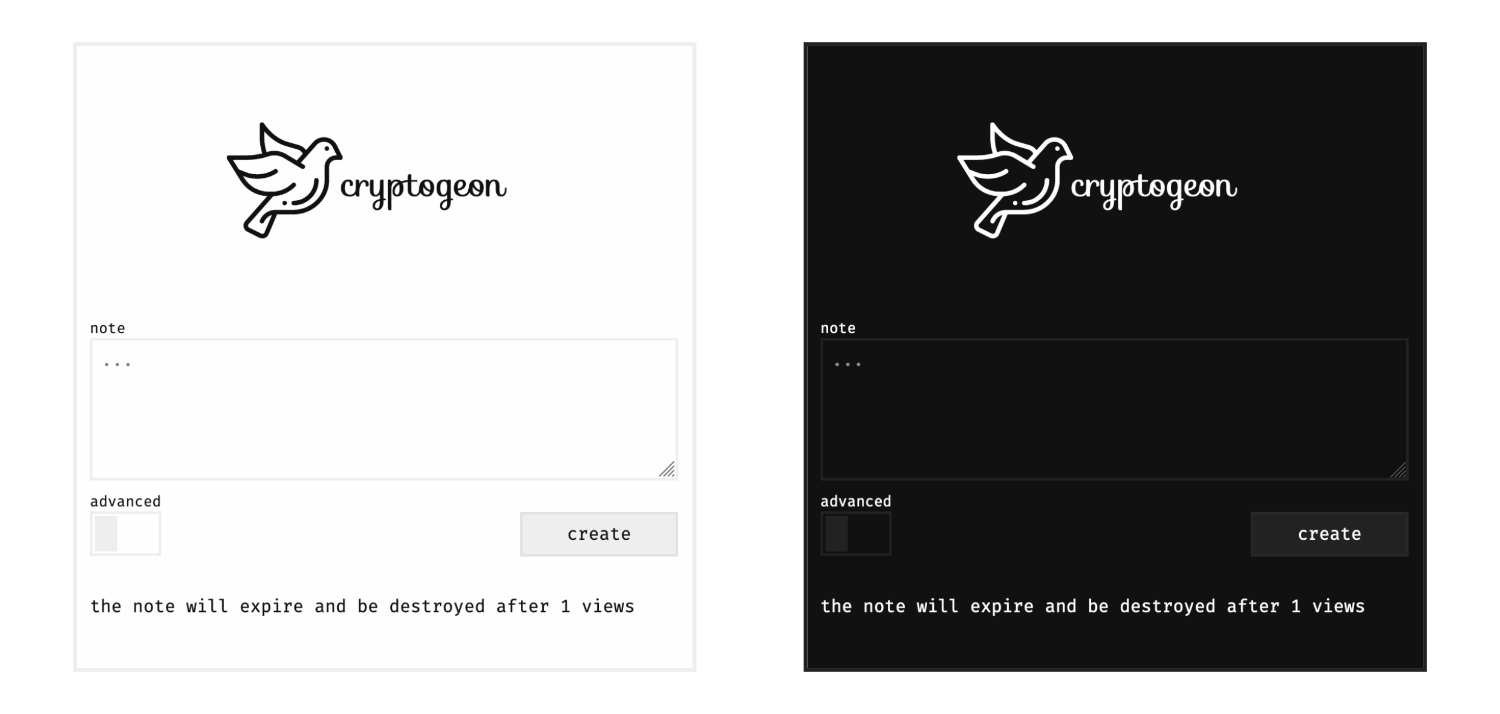






id (256bit) and key 256(bit). The
id
is used to save & retrieve the note. the note is then encrypted with aes in gcm mode on the
client side with the key and then sent to the server. data is stored in memory and
never persisted to disk. the server never sees the encryption key and cannot decrypt the contents
of the notes even if it tried to.
## Screenshot

## Environment Variables
| Variable | Default | Description |
| ------------ | ----------------- | --------------------------------------------------------------------------------------- |
| `MEMCACHE` | `memcached:11211` | Memcached URL to connect to. |
| `SIZE_LIMIT` | `1 KiB` | Max size for body. Accepted values according to [byte-unit](https://docs.rs/byte-unit/) |
## Deployment
ℹ️ `https` is required otherwise browsers will not support the cryptographic functions.
### Docker
Docker is the easiest way. There is the [official image here](https://hub.docker.com/r/cupcakearmy/cryptgeon).
```yaml
# docker-compose.yml
version: '3.7'
services:
memcached:
image: memcached:1-alpine
entrypoint: memcached -m 128M -I 4M # Limit to 128 MB Ram, 4M per entry, customize at free will.
app:
image: cupcakearmy/cryptgeon:latest
depends_on:
- memcached
environment:
SIZE_LIMIT: 4M
ports:
- 80:5000
```
### NGINX Proxy
See the [examples/nginx](https://github.com/cupcakearmy/cryptgeon/tree/main/examples/nginx) folder. There an example with a simple proxy, and one with https. You need to specify the server names and certificates.
### Traefik 2
Assumptions:
- External proxy docker network `proxy`
- A certificate resolver `le`
- A https entrypoint `secure`
- Domain name `example.org`
```yaml
version: '3.8'
networks:
proxy:
external: true
services:
memcached:
image: memcached:1-alpine
restart: unless-stopped
entrypoint: memcached -m 128M -I 4M # Limit to 128 MB Ram, 4M per entry, customize at free will.
app:
image: cupcakearmy/cryptgeon:latest
restart: unless-stopped
depends_on:
- memcached
networks:
- default
- proxy
labels:
- traefik.enable=true
- traefik.http.routers.cryptgeon.rule=Host(`example.org`)
- traefik.http.routers.cryptgeon.entrypoints=secure
- traefik.http.routers.cryptgeon.tls.certresolver=le
```
## Development
1. Clone
2. run `pnpm i` in the root and and client `client/` folders.
3. Run `pnpm run dev` to start development.
Running `npm run dev` in the root folder will start the following things
- a memcache docker container
- rust backend with hot reload
- client with hot reload
You can see the app under [localhost:1234](http://localhost:1234).
###### Attributions
Icons made by freepik from www.flaticon.com